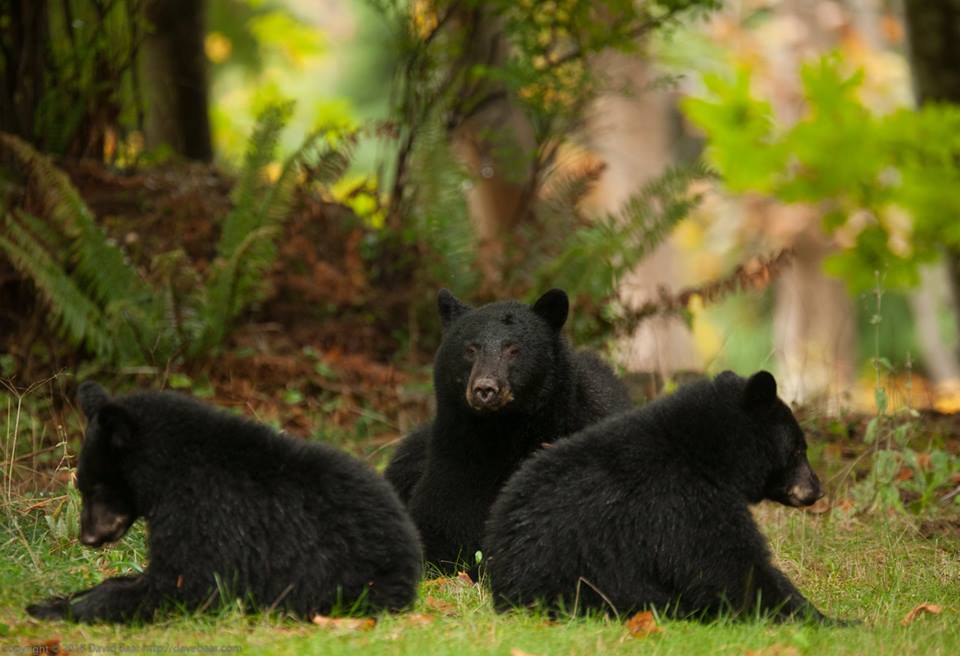The number of human/bear conflicts on Vancouver Island and the Sunshine Coast is double compared to last year.
And it’s nearly triple in the North Island zone.
Conservation officer Sgt. Stuart Bates said calls to the B.C. Conservation Officer Service are significantly higher in the region this year.
But he cautioned that it’s “a little bit misleading.”
“Because bears have cubs every two years, we would have based this year’s predictions on 2017 which puts the central island zone still at almost double, the north island zone at about double, and the Sunshine Coast at about a 25 percent increase.”
The Central Island Zone saw 640 calls to the COS from April to the end of September. Over the same period last year, there were 282.
The number climbs for the North Island Zone with 925 calls compared to 361 last year.
On the Sunshine Coast including Powell River and Sechelt, there’s been 688 calls so far. Over the same time last year, the number was 329.
In 2017, there were 552 calls on the Sunshine Coast.
Bates said a bear/human conflict covers a wide range of interactions.
“They can be anything from a sighting to a ‘got into my garbage, got into my fruit trees, it attacked my dog, it attacked my chicken.’ It can be anything that people call us for.”
If you spot a bear in your neighbourhood, Bates is urging you to call right away.
“If there’s a bear in a residential area, we need to know about, and the sooner we know about it, the more options we have.”
Bates said the best way to keep bears away is to make your property less desirable for them.
“We’re going around and telling people they have to secure their attractants. Garbage is always No. 1, fruit trees this time of year is pretty high on the list. And it’s not the tree it’s the rotting fruit on the ground; bears can smell that for miles. I’ve actually had bears eat enough rotting fruit to get drunk.”
Bates said that if you leave attractants out you will be ordered to do so, or face being issued a ticket.
On Saturday, Bates had to put down his first bear of the year in the Port Alberni area.
“That was a bear…, myself and three police officers were trying to chase it and at three feet he said no. He wouldn’t even stand up. He was laying beside a sidewalk and he wouldn’t get up to leave. He just looked at me and huffed,” Bates said. “I really had no choice. It was the middle of the day. The bear wasn’t afraid of me, and I’m a pretty big guy, at 10 feet in broad daylight, with three police officers behind me. Obviously he’s a tad accustomed to people.”
Bates said based on behaviour, he had to make a judgement call: “What happens if a nine-year-old comes across that bear? Nine, 10 is about the age when kids are allowed to ride their bike to a friend’s house or go walk to the store by themselves.”
He noted that part of the reason for the spike in calls is more public knowledge on the issue. On the flip side there has been others discouraging their neighbours from calling the Conservation Service.
Bates said that is a dangerous thing to do.
“Then, by the time people call us, it’s like ‘yeah, the bear’s been here for three weeks getting into the garbage.’ Two problems with that one: one, why didn’t you call me three weeks ago; two, the bear’s getting into your garbage… why is it still out? And I have literally had those calls.”
Ultimately, Bates said that if a bear doesn’t get a food reward, it isn’t going to stick around.
“It’s certainly not going to become what we call food conditioned or human habituated; if a bear shows up at a salmon stream and the salmon don’t show up that year he doesn’t stay there and starve to death, he leaves. So if a bear shows up in your neighbourhood but doesn’t get any food, he’s not going to stay there. It’s not rocket science.”




